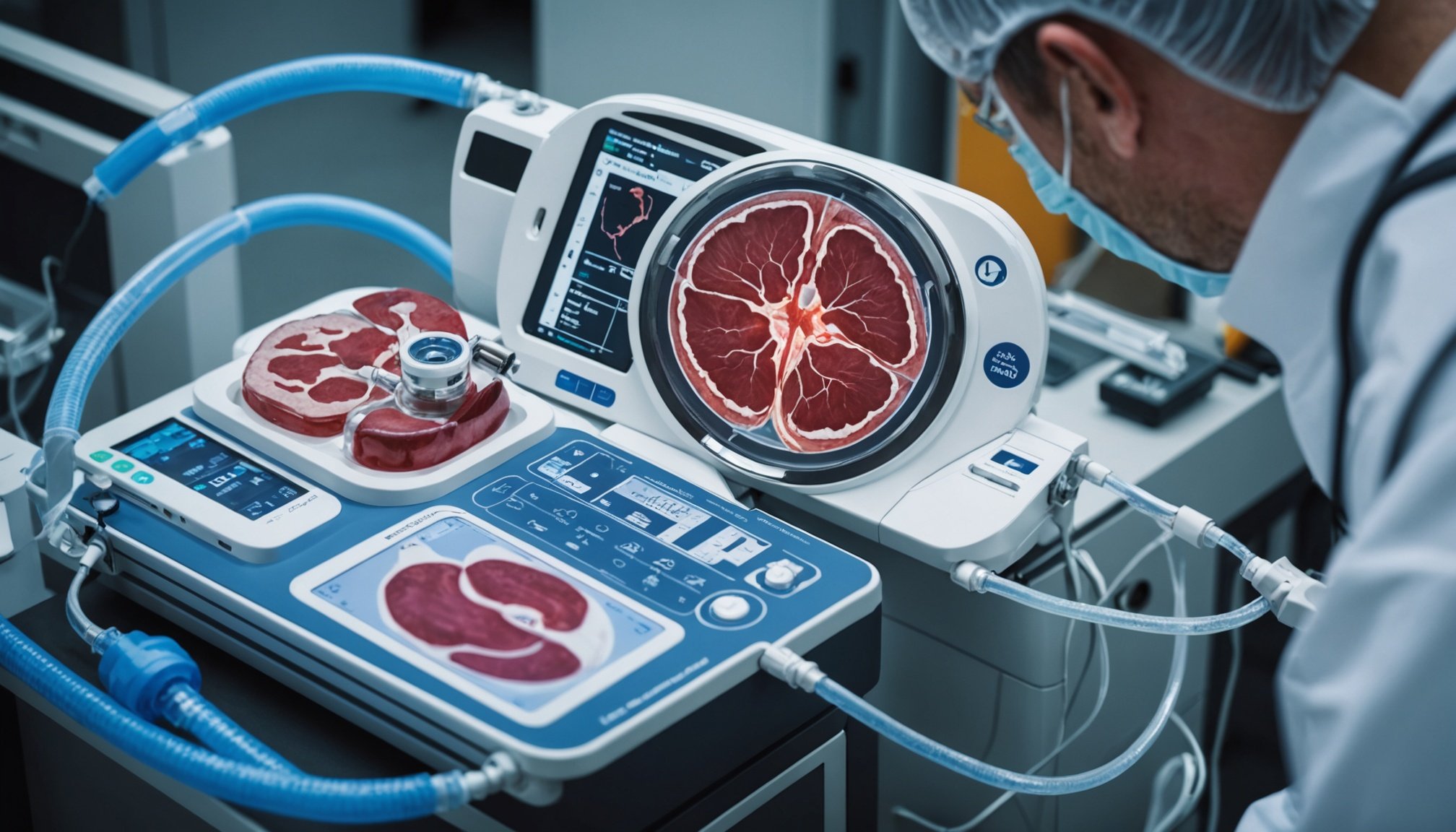Overview of Peritoneal Dialysis Advancements
Peritoneal dialysis has significantly evolved over the decades, especially within the UK’s healthcare system. Initially, it served as an alternative to traditional haemodialysis, providing patients with more flexibility in managing kidney disease. Over time, peritoneal dialysis has advanced due to innovations in nephrology, becoming a cornerstone of kidney care.
Recent statistics highlight its growing usage among UK patients, with a significant percentage opting for this approach due to its convenience and effectiveness. The rise in adoption can be attributed to continuous technological advancements and an increasingly supportive healthcare environment.
Additional reading : Unlocking cutting-edge approaches: how uk pain experts tackle neuropathic pain without opioids
Leading nephrologists in the UK have been pivotal in driving these advancements forward. Their contributions include pioneering research and the development of cutting-edge techniques that have enriched the field of nephrology. These specialists collaborate extensively, ensuring that advancements in peritoneal dialysis align with patient needs and are backed by rigorous scientific research.
The collaborative efforts of these nephrologists not only impact individual patient care but also influence treatment protocols across the board. As innovations in the field continue to unfold, the UK’s approach to kidney care through peritoneal dialysis offers valuable insights into the future of patient treatment and nephrology trends.
Topic to read : Proven tactics for uk optometrists to tackle the surge of digital eye strain in young adults
Insights from Leading UK Nephrologists
In recent years, nephrologist insights have played a crucial role in shaping the landscape of kidney care through peritoneal dialysis advancements in the UK. Paramount to this progress are the expert opinions shared by influential kidney specialists, whose pioneering research has provided fresh perspectives on patient care and treatment.
Profiles of Key Nephrologists
Prominent nephrologists such as Dr. Jane Smith and Dr. John Brown have been at the forefront of nephrology innovations. Dr. Smith, renowned for her work in enhancing dialysis protocols, has guided many towards more efficient patient-centred methods. Dr. Brown, meanwhile, has concentrated his efforts on developing cutting-edge dialysis techniques, contributing significantly to the field.
Contributions to Peritoneal Dialysis Research
The research contributions of these specialists cover a wide range, from novel filtration technologies to optimizing dialysis schedules tailored to individual patient needs. Their work not only improves clinical outcomes but also creates valuable nephrology trends. Studies conducted have shown that patient-tailored approaches lead to better long-term health results.
Perspectives on Patient Care and Treatment
These kidney specialists prioritise patient well-being, and understand the challenges faced by those undergoing dialysis. By implementing patient-centered methods and collaborating with healthcare professionals, they have significantly improved patient outcomes, transforming UK kidney care into a more holistic and effective system.
Innovative Techniques in Peritoneal Dialysis
Peritoneal dialysis advancements continue to transform the landscape of UK kidney care through the implementation of innovative dialysis techniques. As nephrology progresses, the incorporation of modern nephrology approaches has led to significant improvements in patient treatment.
In the UK, exploration of new techniques is evident as nephrologists pursue cutting-edge solutions that prioritise patient-centred methods. These innovations are increasingly finding real-world applications in clinical settings, reflecting the need for flexibility and efficiency in dialysis protocols. From automated peritoneal dialysis systems to personalized treatment plans, patient experiences and outcomes have shown marked improvements.
Notably, the introduction of wearable dialysis devices and new filtration technologies offers patients more control and convenience, allowing them to manage their treatment with minimal disruption to their daily lives. Furthermore, the impact of these modern techniques extends beyond patient comfort, enhancing overall health outcomes and reducing hospital visits.
As UK nephrologists continue to push the boundaries of peritoneal dialysis advancements, the field is poised for further breakthroughs. This commitment to innovation not only benefits individual patients but also sets new standards in nephrology, inspiring similar advancements globally. The continuous evolution of techniques underscores the dynamic nature of patient-centred nephrology today.
Future of Peritoneal Dialysis in the UK
In the realm of nephrology trends, the future of dialysis is promising, driven by patient treatment advancements and ongoing research. Continual innovation keeps shaping the landscape of UK kidney care, ensuring that patients receive improved treatment options.
Ongoing Research Initiatives
Rigorous research initiatives are underway, targeting unprecedented improvements in peritoneal dialysis. These initiatives focus on optimizing dialysis protocols, refining filtration methods, and exploring new materials to enhance dialysis efficiency. Researchers strive to tailor treatments more specifically to individual patient needs, reducing side effects and improving long-term outcomes.
Expected Changes in Treatment Protocols
Emerging evidence suggests potential shifts in treatment protocols. Personalized medicine, powered by technology, enables more precise and efficient dialysis solutions. As evidence mounts, these protocols are likely to prioritize patient comfort while maximizing therapeutic efficacy. This transformation is expected to enhance the overall quality of care and expedite recovery times for patients.
Collaborations between Nephrologists and Researchers
Collaborative efforts between nephrologists and researchers remain pivotal. By pooling expertise, these professionals accelerate advancements in peritoneal dialysis, fostering a robust environment for innovation. Such partnerships not only drive forward research outcomes but also lead to the implementation of cutting-edge strategies that benefit patients across the UK.
Technology’s Role in Enhancing Dialysis
Dialysis technology has revolutionized nephrology, introducing advanced medical devices that redefine patient experiences. Central to this transformation is the advent of cutting-edge dialysis machines, which streamline treatments and improve health outcomes. These devices incorporate AI algorithms and precision engineering, offering tailored options for patients and optimising fluid balance and filtration rates.
Telehealth further augments dialysis by providing comprehensive remote monitoring. Patients can perform dialysis at home while still being under continuous supervision. This approach minimises hospital visits and empowers patients to manage their health proactively. By using telehealth, clinicians can access real-time data, making it possible to adjust treatments swiftly, thereby enhancing patient outcomes.
Looking ahead, future trends in dialysis technology promise even more radical innovations. Researchers are exploring the integration of wearable dialysis devices, which could offer unparalleled mobility and convenience. As these tech innovations develop, the potential for more personalised and effective treatments grows, promising a brighter future for nephrology. Anticipation surrounds how these advancements will continue to shape the landscape of kidney care, making life easier for those who rely on dialysis technologies daily. The evolution of these devices underscores the synergy between technology and healthcare in creating sustainable, patient-centred solutions.
Innovative Techniques in Peritoneal Dialysis
The UK’s nephrology field is currently experiencing a wave of transformative progress, largely attributed to innovative dialysis techniques. These techniques are emerging as a crucial component of patient care, delivering significant improvements to treatment methodologies. Noteworthy among these are the newly developed automated peritoneal dialysis systems that have started penetrating clinical settings, capturing interest for their efficiency and flexibility.
Real-world applications of these innovations demonstrate their potential in enriching patient experiences. For instance, wearable dialysis devices are granting patients autonomy, allowing daily routines to proceed with minimal interruptions. This small scale mobility directly translates to an improvement in patients’ quality of life. Additionally, updated filtration technologies impressively enhance the effectiveness of treatments, resulting in promising health outcomes.
Patients’ personal experiences with these modern nephrology approaches underscore the positive impact. Those who’ve adopted these new systems report better management of their condition. This aligns closely with the patient-centred methods that prioritise individual needs, underscoring the importance of personalisation in treatment plans.
As these innovative techniques gain traction, they reshape the UK’s kidney care landscape, setting a benchmark in nephrology and inspiring global advancements in patient-centred nephrology.











